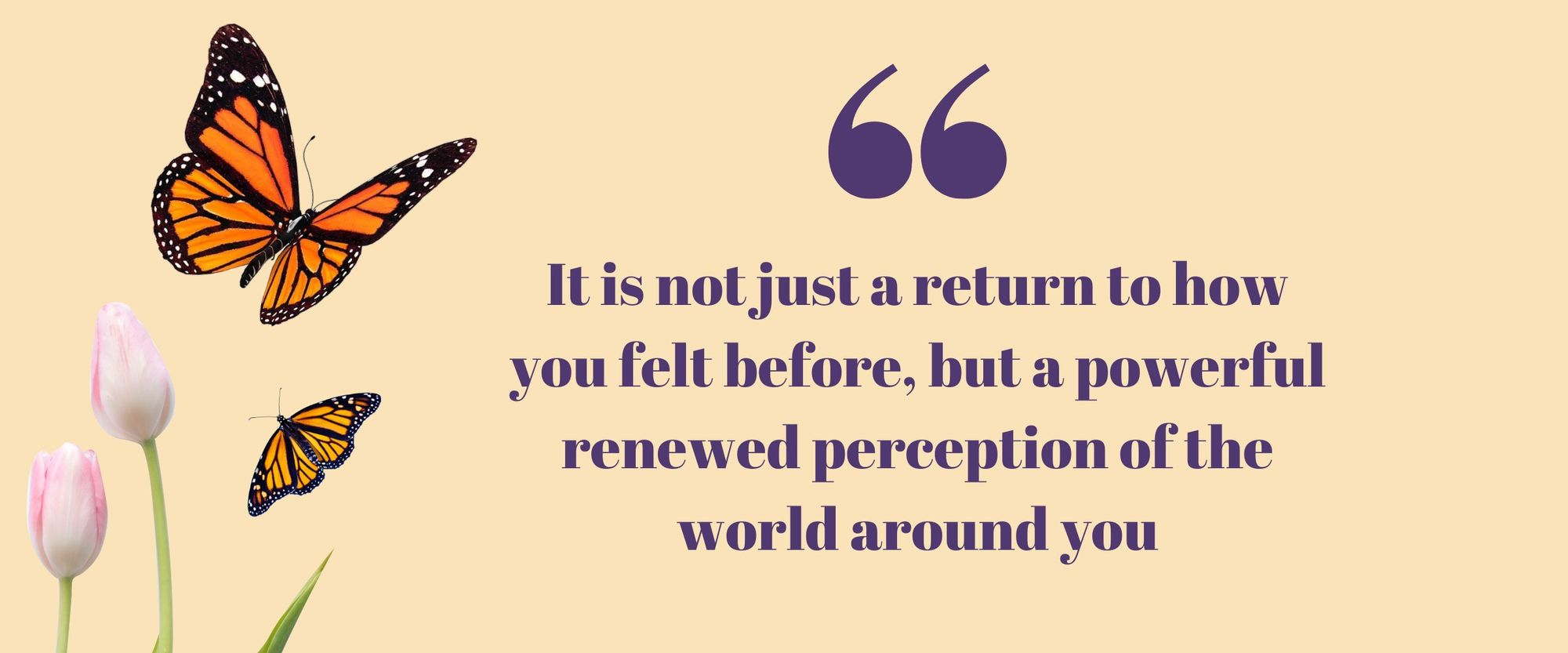Is it possible to move forward from a traumatic experience, and discover new perspectives and positivity on the other side?
We all hope to avoid serious illness, loss, and violence, as we journey through life. However, the unfortunate truth is that 75% of us will experience a traumatic event at some point during our lives, according to PTSD research published in Biological Psychiatry.
Most of us have heard the words by Friedrich Nietzsche: ‘What does not kill me, makes me stronger,’ and in the midst of such a struggle, you may wonder whether this can actually be true. Although the media frequently covers the negative impact that stress and trauma can have, receiving less attention is the notion that supports Nietzsche’s aphorism: post-traumatic growth. This is the experience of positive psychological change, or a shift in perspective, following adversity or trauma. It can lead to profound changes in your values, how you behave, and your relationships with others.
The term post-traumatic growth was first coined in the 90s by researchers Tedeschi and Calhoun, who define it as a “positive psychological change in the wake of struggling with highly challenging life circumstances”. Their research found that it entailed five areas of personal growth, including an appreciation for life, improved relationships with others, new opportunities, increased personal strength, and spiritual change. This could present in different ways, for example, you may feel that following the loss of a loved one, you have an increased appreciation for life. You may find that a difficult experience strengthens the bond with your loved ones, improving your relationships. After a period of ill-health, you may take up spiritual wellbeing practices, such as yoga and meditation. These could all be part of the experience of post-traumatic growth.
Although there has been an increased focus on resilience – the personal attribute helping you to bounce back – following the pandemic, post-traumatic growth goes much further than this. It is not just a return to how you felt before, but a powerful renewed perception of the world around you.
It is important to note that not everyone will experience post-traumatic growth. There should not be undue pressure put on ourselves or anyone else after a difficult experience. We have to allow ourselves to heal, and to accept however it is we are feeling – with no pressure or rush to find a positive in what’s happened.
This isn’t a concept that’s trying to push us into hiding away from our true feelings, especially if we’re not ready to move forward, but rather to provide hope that there could be a chance to take something good from a bad situation. Research shows that up to half of us who have experienced a traumatic event experience post-traumatic growth. People can and do excel after trauma, and there are certain factors in your control that could help you along the way.

Build a support network
Having a strong support network is vital to healing and growing after adversity. Your support network can include friends, family, support groups, health professionals, and even pets! Socialising with friends can boost positive emotions, leaning on loved ones can help us to feel less alone, and health professionals can help us to deal with and process trauma. A social support network is vital to helping people overcome post-traumatic stress symptoms, and stronger connections are linked with higher levels of post-traumatic growth. When going through a difficult time you may not feel like socialising, but if you can take the step to reach out to a loved one, it can make a huge difference to your wellbeing.
Practise self-compassion
Self-compassion entails recognising that you are human, and deserving of the same compassion that you show to others. It includes treating yourself kindly, and through mindfulness, acknowledging your feelings and emotions without suppression or over-identification. When going through a difficult time, it is important to know that you are not alone, and that your feelings are valid. You can practise self-compassion through imagining you are talking to a friend going through a difficult time, either in your head, aloud, or written down. There are many benefits to practising self-compassion, including a better ability to self-regulate, adjustment to pain, and overall positive psychological functioning, which can contribute to the experience of post-traumatic growth.
Sit with your emotions
Post-traumatic growth should not be used to avoid your pain or the pain of others, and can, in fact, coexist with post-traumatic stress disorder (PTSD). Pain and emotions following a difficult experience are unavoidable, and can be difficult to deal with, but they can also be used to your benefit. Sitting with your emotions and processing them in your own time, in a way that feels right for you, can help you to experience post-traumatic growth. This may be through self-reflection, writing it down in a journal, or professional help such as counselling or coaching. Research by the University of Carolina in 2021 found that the more you think about the adverse experience, the more likely you are to experience positive change.
Be open to new opportunities
A renewed perception of the world can lead to new opportunities and vice versa, new opportunities can create a renewed perception of the world. If you have experienced adversity, it can sometimes present opportunities that otherwise would not have arisen. Your challenges may lead you to meet new people, discover new passions, or connect you to a new purpose. For example, following a difficult experience, you may feel inclined to volunteer or give back to a charity that supports others in a similar situation. Openness to these new opportunities can lead to new paths and possibilities in life, and could be a catalyst for growth.

Do not put pressure on yourself or others
Finally, it is important that you do not put pressure on yourself or others to feel a certain way after any type of trauma. Although there is no timetable for growth, time is important for healing, and post-traumatic growth can take years for those who do experience it. Every one of us is unique, and so are our experiences, and the lens we view life from, so we cannot judge, assume, or expect a particular experience.
Just know, there is always hope – whatever may have caused suffering in your life, it is not the end. Given the right support, tools and mindset, you may be able to experience profound positive change, and see the world in a new light again.
For more information on PTSD, visit ptsduk.org, or speak confidentially to a professional from the Counselling Directory.


Comments